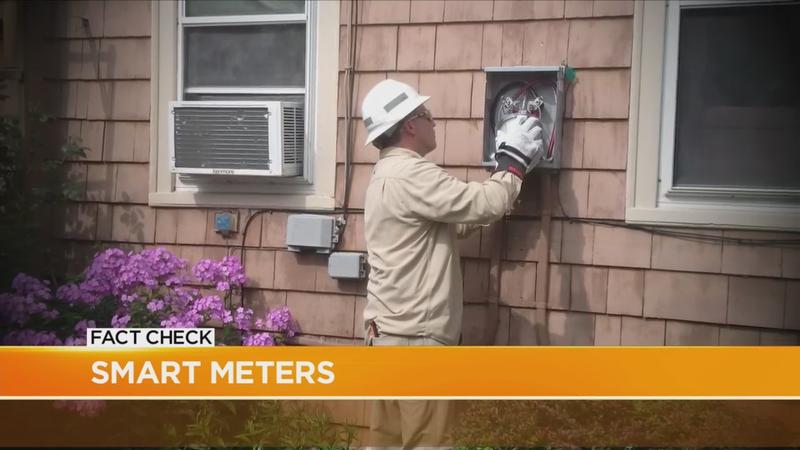Fact Check: Smart Meters
[anvplayer video=”5040719″ station=”998131″]
ROCHESTER, N.Y. (WHEC) — Over the next few years, RG&E and NYSEG will start installing smart meters in our homes, but it doesn’t come without controversy. Some people claim they’re a health hazard.
The issue here: radio frequency signals or RF exposure. Smart meters, like cell phones and microwaves, do emit RF radiation, but is it enough to harm your health?
"Smart meters are an important part of the grid of the future that we’re building," said Sarah Warren from Avangrid.
The utility company plans to install nearly two million smart meters in New York in the next three to five years. About 1.3 million would be electric meters, and 600,000 would be natural gas meters.
"Smart meters can either be an electric meter or a natural gas meter and they have communications between the meter and the system," explained Warren.

[News10NBC]
So instead of someone coming out to your house to read the meter, your meter reading is transmitted to the power company wirelessly. That means no more estimated billing. It will also alert the company immediately if there’s a power outage. That could lead to faster restoration times. Another benefit? You’ll be able to look at your day-to-day energy consumption.
"That will help them with energy efficiency and deciding how they want to use their energy in their home," Warren said.
This all sounds great, but there are some health concerns.
"The smart meters do admit low levels of the radio frequency (RF) signals," said Warren. "However, they are substantially less RF signals in smart meters than your cell phone."
According to Avangrid, RF exposure from a cell phone is more than 12-thousand times greater than a smart meter.
"The RF signals from smart meters are 10 to 100 times lower than what is the safe and standard by the FCC for everyday use," added Warren.
But according to the American Cancer Society, RF radiation is classified by the International Agency for Research on Cancer (IARC), as "possibly carcinogenic to humans." However, it goes on to say since cell phones expose you to so much more RF radiation it’s unlikely that living in a house with a smart meter increases risk of cancer.
"We have heard concerns about the RF signals, which is completely understandable. Customers have a right to be concerned about what’s coming into their home," Warren said. "However, we have done extensive research in the technology that’s used in our smart meters and they are deemed safe and okay for everyday use by the FCC."
News10NBC found out you will be able to opt-out of getting a smart meter in your home. But will it cost you?
"We’re still determining a lot of the details of our deployment and installation schedule as well as our opt-out program," said Warren. "So those details are still to be determined."
Some other utility companies across the country that have already moved to smart meters did charge a fee to opt-out and keep your old meter. We’ll have to see what happens here.
Click here to read more about RF radiation and the FCC’s exposure guidelines.
_____
Check out other Fact Checks here. If you have an idea for Fact Check, email Nikki Rudd at nrudd@whec.com.